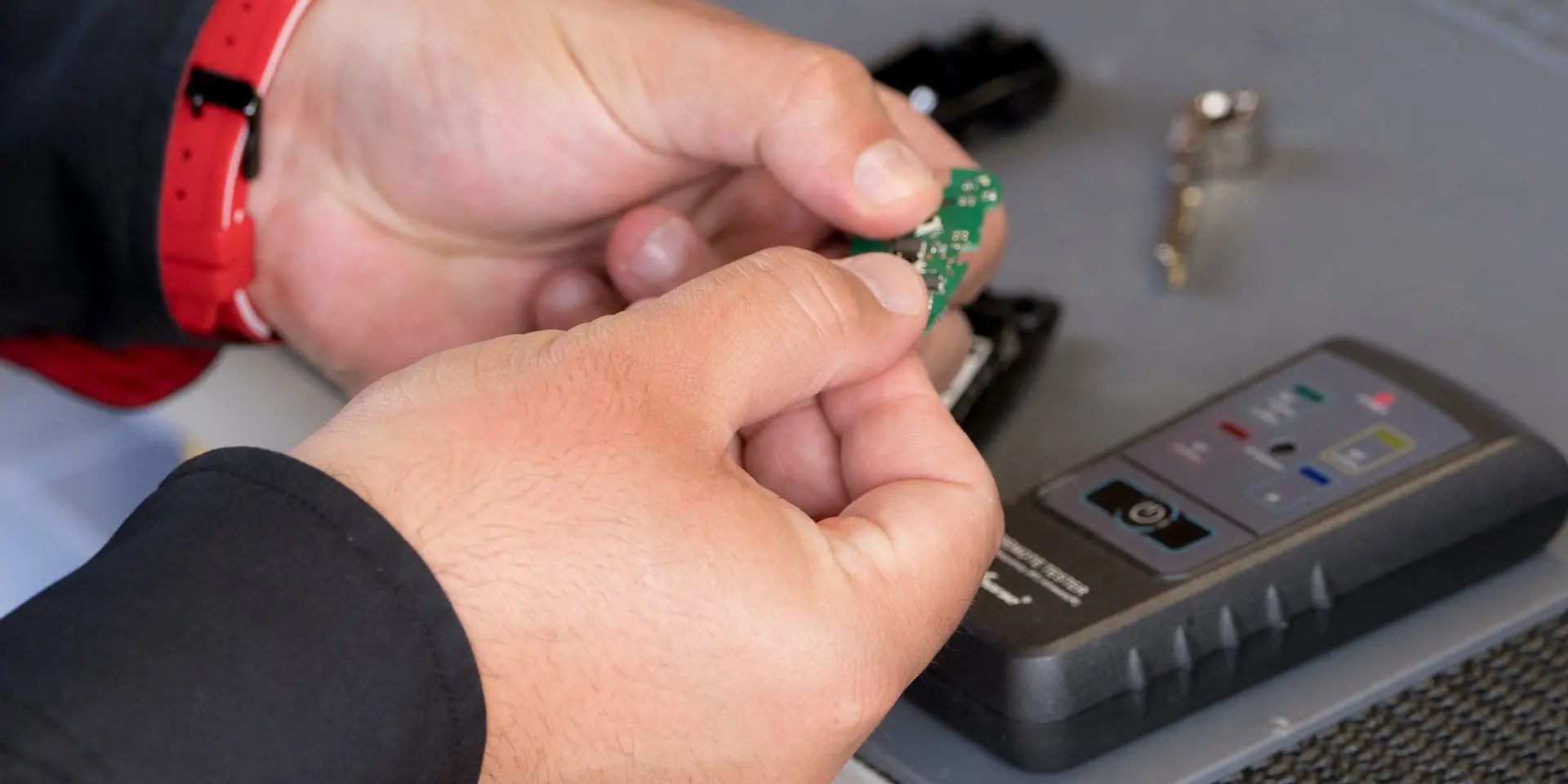
You'll Never Guess This Emergency Car Key Repair's Secrets
Emergency Car Key Repair: A Comprehensive Guide
Car keys are a crucial part of vehicle ownership, and their unexpected malfunction can trigger substantial inconvenience. Whether lost, broken, or harmed, understanding how to manage emergency car key repair is essential for any vehicle owner. This detailed guide checks out different elements of car key repair and replacement, addressing common problems, prospective solutions, and the significance of professional services.
Understanding Car Keys
Modern car keys been available in different types, each including distinct innovations and functionalities. The main types consist of:
- Traditional Mechanical Keys: The easiest form, these keys operate through a mechanical locking mechanism.
- Transponder Keys: Equipped with a chip that communicates with the car's ignition system for enhanced security.
- Key Fobs: Remote access systems that typically include keyless entry functions.
- Smart Keys: Advanced systems that permit keyless ignition and entry, typically discovered in more recent vehicles.
Typical Issues with Car Keys
In emergency circumstances, understanding the reason for car key breakdown can help identify the right approach for repair. Some often come across problems consist of:
- Key Breakage: Often takes place due to wear and tear or extreme pressure when inserting or turning the key.
- Lost Keys: Misplacement or loss of keys can leave a vehicle owner stranded.
- Dead Key Fob Battery: A typical concern with remote keys, causing failure in keyless entry or ignition.
- Transponder Key Malfunction: If the chip in the key is harmed, the vehicle may not recognize the key.
- Lock Cylinder Issues: Problems with the ignition or door lock cylinders can prevent the key from turning appropriately.
Do It Yourself Emergency Car Key Repairs
Before availing professional services, certain scenarios might permit DIY repairs. Nevertheless, these methods depend upon the concern at hand. Below are some methods:
1. Broken Key Repair
Materials Needed: Super glue, a pair of pliers, and wet wipes.
Steps:
- Carefully line up the 2 pieces of the broken key.
- Apply a little amount of very glue to the break and hold the key together for a few minutes.
- Wrap the key with tape to offer additional support while the glue dries.
- If the key breaks again, consider getting a duplicate made.
2. Dead Key Fob Battery Replacement
Products Needed: New battery (typically CR2032), little flat-head screwdriver.
Steps:
- Open the key fob utilizing the screwdriver.
- Get rid of the old battery carefully.
- Replace it with a brand-new battery, guaranteeing the positive (+) side deals with the appropriate direction.
- Close the fob and test the functions.
3. Lock Cylinder Issues
If your key will not kip down the lock, it may be due to particles or problems with the cylinder itself.
Products Needed: Lubricant spray, an old tooth brush or cloth.
Steps:
- Spray a percentage of lubricant into the lock cylinder.
- Utilize a cloth or old tooth brush to clear any debris or dirt.
- Attempt to turn the key carefully.
When to Seek Professional Help
While numerous issues might be resolved through DIY techniques, some issues require the proficiency of an expert locksmith or car dealer. The following scenarios normally require professional intervention:
- Severe Damage: If the key is considerably harmed or broken, changing it may be essential.
- Transponder Key Issues: Expert reprogramming may be needed if the key fails to communicate with the vehicle.
- Key Duplication: For complex key types, a locksmith ensures precise duplication or replacement.
Advantages of Choosing Professional Services
- Proficiency: Professionals have the necessary training and experience to handle numerous types of keys.
- Time Savings: Instead of trial and error, professionals can fix issues effectively.
- Access to Technology: Locksmiths can reprogram transponder keys and key fobs that require specific equipment.
Comparison Table: DIY vs. Professional Services
| Element | DIY Solutions | Specialist Services |
|---|---|---|
| Cost | Low (minimal tools) | Higher (service fees) |
| Skill Required | Fundamental | Advanced |
| Time Efficiency | Variable | Quick |
| Repair Capabilities | Restricted to small problems | Wide variety of repairs |
| Tool Accessibility | Standard tools | Specialized equipment |
Often Asked Questions (FAQs)
1. Can I get a car key made without the original?
Yes, a locksmith can typically produce a duplicate key utilizing the vehicle's VIN (Vehicle Identification Number).
2. How long does it take to replace a car key?
The time needed depends upon the key type and the intricacy of the locksmith's work. Basic keys may take a couple of minutes, while electronic key fobs might take longer.
3. Will my car warranty cover key replacement?
Usually, car service warranties do not cover key replacement. However, it's finest to consult your car dealership regarding coverage specifics.
4. Is it safe to buy car keys online?
Buying car keys online can be dangerous; it's essential to make sure that the provider is trusted. Many keys require programming that can only be done by professionals.
5. What should I do if my key gets stuck in the ignition?
If your key is stuck, avoid forcing it out. Instead, shut off the vehicle, make sure the equipment is in 'Park,' and gently wiggle the key. If it doesn't come out, seek professional support.
Managing emergency car key repairs can be challenging, however understanding the kinds of keys, typical problems, and repair choices can relieve the stress. While DIY methods can be effective for small repairs, understanding when to contact a specialist can conserve time, aggravation, and eventually, money. By being proactive and notified, vehicle owners can guarantee they are well-prepared for any car key emergencies.



